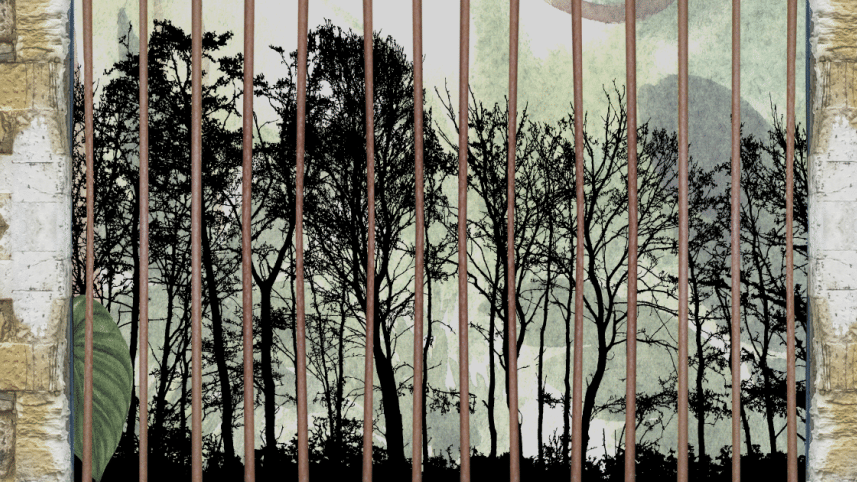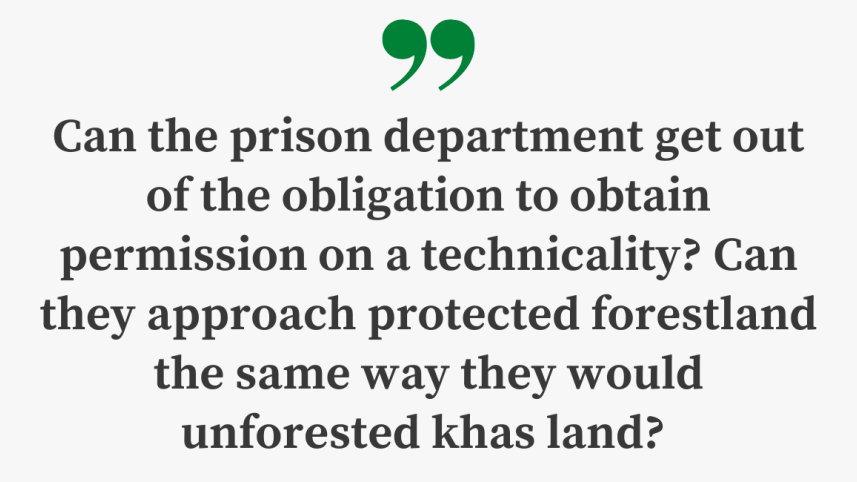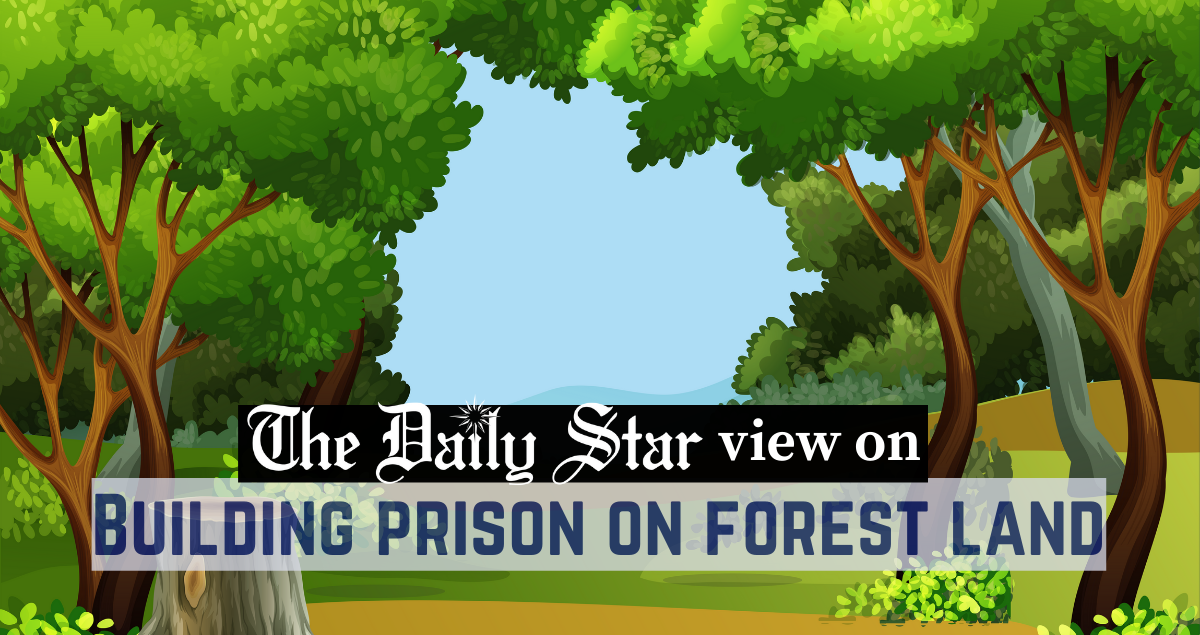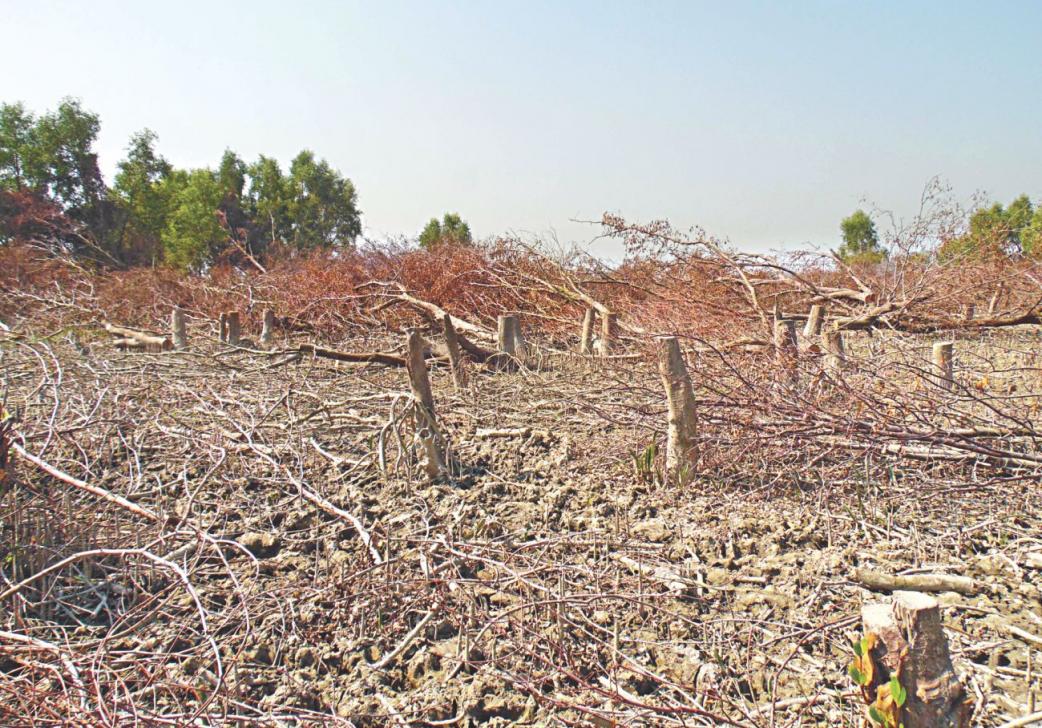Who wants a piece of forest?

In director Syed Ahmed Shawki's critically acclaimed first season of the prison thriller Karagar, there is a scene where a leader of the inmates, a follower of the mystery man known as Gazi Peer, tells fellow inmates that they are living in relative comfort but lack one crucial element in their life. "What do we not have here?" he asks, and then, prompted by a lackey, answers, "We don't have a guardian we can call our own" – a vacuum, he goes on to suggest, Gazi Peer could fill.
I bring this up in an op-ed on forests merely to show – in as whimsical a way as all problems in Bangladesh seem to be connected – the absurdity of a recent case involving prisons and forests, and to suggest that prisons can cause this feeling of a lack of guardianship not just within their cells but outside as well. The central characters in this case are two departments of the government, prison and forest, who should have nothing to do with each other ordinarily. Yet, in this land of precious little land, the two traded metaphorical blows over a piece of forest recently, after the prison authorities started a bid to build an "open prison" there.
According to a report by The Daily Star, the problem began after the 160 acres of forestland in Ukhiya, Cox's Bazar was allotted to the prison department by the land ministry, after which the former placed demarcation flags around it. But then the forest department removed those flags since no prior clearance was taken from them. This is where things get tricky. Forest officials say the land is part of a protected forest. Prison officials, however, say it is khas land. It can be both and yet retain its distinct character. The question is: can the prison department get out of the obligation to obtain permission on a technicality? Can they approach protected forestland the same way they would any unforested khas land? And why would the land ministry even allow for the destruction of a natural resource of which we have evidently so little?
It is ironic to think that any sense of a lack of guardianship with regard to our fast-depleting forests would come from having too many guardians. It can only mean having no real guardian at all. This is as true for our forests as it is for our hills and rivers. The latter, despite being granted a "living entity" status by the High Court and having the National River Protection Commission assigned as their "legal guardian," continue to be in dire straits. With protectors like these, who needs predators?
The forest department may appear to be on the right side of things for once, but its history is equally tainted. Note its line of argument in case of the Ukhiya incident. When approached for comments over the conflict, a forest officer said they had "no issues" with the prison authorities; all they ask is for them to "go through proper procedure." As if that would have justified clearing a forest.
Not long ago, after the government allowed the Bangladesh Football Federation (BFF) to build a residential training facility on 20 acres of land in a reserved forest in Ramu, Cox's Bazar, the minister of environment, forest and climate change supported handing over the land. He claimed that there was "no alternative" to it and that "we will make sure that any harm to the forestland is kept to a minimum." That's a BIG minimum, as revealed by an internal estimate, which said that 30,000 trees will have to be felled for the construction of the centre. Last year, the land ministry, a frequent violator of forest conservation rules and directives, also allotted 700 acres of a forest adjacent to the Cox's Bazar-Teknaf Marine Drive to the public administration ministry to build a civil service academy there.

Could these projects be taken elsewhere? Certainly. Could we get back a forest if ravaged? Certainly not. You can't simply wish a forest into existence or have it magically regrown elsewhere. The last two forests in question are designated Ecologically Critical Areas (ECAs), which makes them extremely important to conserve.
But forget the criminality of using forests for non-forest purposes. What we are witnessing here is an environmental free-fall with forests being encroached by the very people/agencies whose responsibility it is to prevent it. This is being done mostly through what we can call illegally legal means, such as "de-reserving" part of a reserved forest, keeping the option for decriminalising a takeover through "proper procedure," leasing out forestland, etc. And it's happening at a time when the reserved forests in Cox's Bazar have been facing a great onslaught, with more than 7,000 acres of forestland already razed to the ground by refugees in Ukhiya and Teknaf. Not to be outdone by their official counterparts, illegal encroachers also sliced away more than 50,000 acres of a total of 186,457 acres of reserved forests across the coastal region.
There are precious few forests left in Bangladesh. I'm not going into details, nor are details what move our policy goalposts. If it did, Bangladesh's commitment at the COP26 summit last year to stop deforestation – and increase forestland by 25 percent – by 2030 would have translated into drastic action given the short window of time. Instead, we are putting everything we hold dear at the altar of development. We're driving away indigenous communities who traditionally protected these lands. And we're continuously encouraging official encroachment under various pretexts through various wings of the administration, when they should be on hyper-alert to stave off such attempts.
What they – and, frankly, all of us – need urgently is a renewed sense of ownership and guardianship of what little forest coverage we still have left, a paltry 11 percent or so, and to try to protect and build upon it. Change is possible only if we realise how critical forests or wildlife are to our existence.
Badiuzzaman Bay is assistant editor at The Daily Star.




 For all latest news, follow The Daily Star's Google News channel.
For all latest news, follow The Daily Star's Google News channel. 

Comments